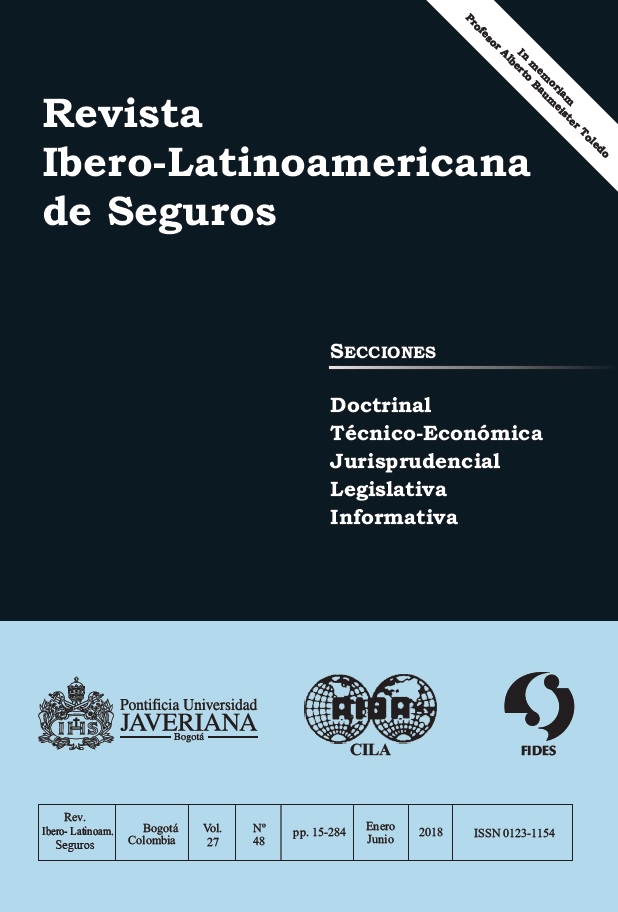Abstract
Microinsurance (MS) is a product of protection to people in conditions of vulnerability that provides alternatives to mitigate the risk. The article wants to give an account of the innovation that a family MS has in the event of unemployment by covering food and providing support for education and medication for 6 months in populations vulnerable to unemployment in strata 1, 2 and 3 of the city of Bogota. The methodology used was a market study that allowed to establish the unfavorable conditions a level of formal and informal employability, food and social welfare in 3 neighborhoods of Bogotá to establish the coverages and conditions that should have the MS policy. This process of realization through an actuarial model that allowed it to calculate the TPRD (m) and TPRIT (m), Monthly Commercial Rates TCD (m) and TCIT (m) to calculate the Monthly Trade Premiums PCD) And PCIT (m) of the coverages for involuntary unemployment and temporary incapacity. According to the results obtained, the availability of the populations to acquire MS that are characterized by their low premium, food coverage with 20% in educational support and 20% of the medicines on one of the three alternatives of insured value that can be taken by the user to comply with the functionality of mitigating food risks and protecting the family and social development of each of these populations.
estudio de caso en estratos 1, 2 y 3 de la ciudad de Bogotá. Revista Finnova:
Investigacion e Innovación, vol. 2.
Camargo, A., Tatin-Jalerán, C. & Furst, L.G., (2014). Colombia, Hacia un sector de
seguros inclusivo y universal.
Churchill, C. & Matul, M., (2014). Protegiendo a los pobres: Un compendio sobre
microseguros.
Mccord, M.J., Ingram, M. & Tatin-Jaleran, C., (2014). El panorama de los microseguros
en América Latina y el Caribe.
Mena, B., (2004). Microcréditos: un medio efectivo para el alivio de la pobreza. Microfinanzas.
Yunus, M., (2008). Hacia un mundo sin pobreza. , vol. VII, pp. 1998-2001.
This journal is registered under a Creative Commons Attribution 4.0 International Public License. Thus, this work may be reproduced, distributed, and publicly shared in digital format, as long as the names of the authors and Pontificia Universidad Javeriana are acknowledged. Others are allowed to quote, adapt, transform, auto-archive, republish, and create based on this material, for any purpose (even commercial ones), provided the authorship is duly acknowledged, a link to the original work is provided, and it is specified if changes have been made. Pontificia Universidad Javeriana does not hold the rights of published works and the authors are solely responsible for the contents of their works; they keep the moral, intellectual, privacy, and publicity rights.
Approving the intervention of the work (review, copy-editing, translation, layout) and the following outreach, are granted through an use license and not through an assignment of rights. This means the journal and Pontificia Universidad Javeriana cannot be held responsible for any ethical malpractice by the authors. As a consequence of the protection granted by the use license, the journal is not required to publish recantations or modify information already published, unless the errata stems from the editorial management process. Publishing contents in this journal does not generate royalties for contributors.



